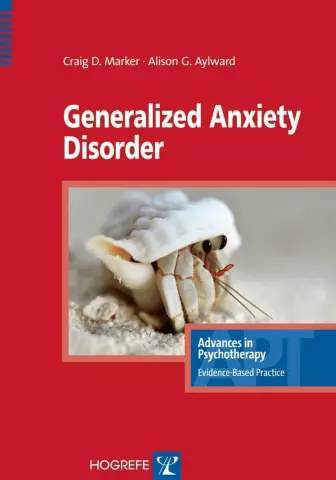- Author Curtis Blomfield blomfield@medicinehelpful.com.
- Public 2023-12-16 20:44.
- Last modified 2025-01-23 17:01.
Bipolar disorder of the second type, unlike the first, usually implies a depressive phase. At the same time, periods of slightly elevated mood (hypomanic) are extremely difficult to diagnose. In fact, even for psychiatrists, this disease is both an ethical and a diagnostic problem.

Firstly, because patients in this condition do not go to the doctor. After all, everything is fine, the mood has improved, I want to live and work, new ideas and plans appear … Secondly, because it is extremely difficult to distinguish such an episode from a normal recovery or improvement in depression.
Bipolar II, like Type I, is a mental illness. However, such aspects as hospitalization, recognition of incapacity for work, assessment of the adequacy and the possibility of making decisions by patients cause great ethical problems. For example, can a person diagnosed with bipolar II disordermanage your property and life? Is it possible to recognize that he has free will, or should his desire to sell an apartment or get married be perceived as a deviation?

The classic variant of manic-depressive psychosis, which occurs with pronounced phases of excessively high and low mood, is diagnosed quite quickly.
Bipolar 2 is different. First of all, the doctor draws attention to a long period of depression, but a necessary symptom that will differentiate the disease from major depression is the presence of at least one hypomanic episode. According to many studies, bipolar 2 disorder is much less commonly diagnosed. Nevertheless, according to scientists, it is this disease that leads to suicide more often than classic depression.

Patients are much less likely to come to the attention of a psychiatrist, they do not often seek help, perceiving their condition as temporary and transient.
Bipolar II disorder is often accompanied by comorbid psychiatric disorders. This is social phobia and obsessive-compulsive disorder syndrome. Very often, obsessive-compulsive disorder is perceived as an independent nosological unit, but patients, ashamed of their quirks, do not try to use the help of a specialist. Social phobia manifests itself in a progressive withdrawal from public life, fear of communication, beforecontacts with other people. This factor further exacerbates the suffering and problems experienced by people with bipolar disorder. In mental illness affecting the affective (emotional) sphere, antidepressants, psychotropic drugs, lithium are most often prescribed.
It can be argued that bipolar disorder of the second type has relatively recently been considered as an independent nosological unit. It still causes scientific discussions and poses problems for doctors in diagnosis and timely assistance.






